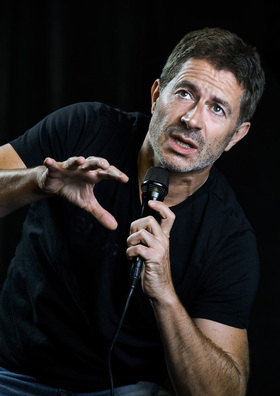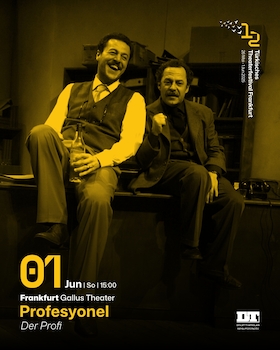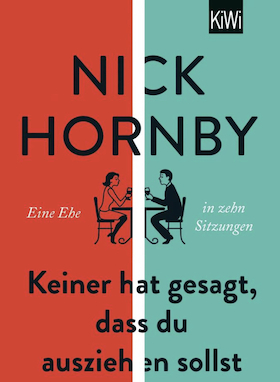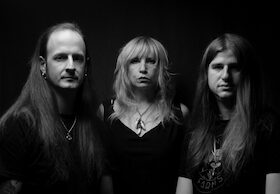„Keiner hat gesagt, dass Du ausziehen sollst“, sagt Louise. Sie, eine vielbeschäftige Ärztin ist fremdgegangen und Tom, ein arbeitsloser Musikkritiker ist ausgezogen. Nun gehen die beiden jede Woche zur Eheberatung und treffen sich stets vorher in einem Pub. Er bestellt Bier, sie Weißwein. So stimmen sie sich auf die Sitzungen ein, diskutieren, ob ihre Ehe eher einem Marathon oder doch nur einem abgebrochenen 50-Meter-Sprint ähnelt oder ob Louises Affäre als ein Fehler oder mehrere zu werten ist. Fragen über Fragen, die mit sarkastischem Humor und guten Pointen in einem pulsierendem Schlagabtausch mehr oder minder erfolgreich ausgefochten werden. Als Tom aber zugibt, aus einer Protesthaltung heraus für den Brexit gestimmt zu haben, ist Louise außer sich. Kann es sein, dass ihre Kinder und das Interesse an Kreuzworträtseln die letzten Gemeinsamkeiten sind? Das Stück befindet sich gefühlsmäßig irgendwo zwischen sehnsüchtigen Annäherungsversuchen, Abwehrhaltung, Komik und der Ernsthaftigkeit des Lebens. Wie die Beziehung der beiden weitergeht, ist offen, jedes Treffen scheint wie ein Neuanfang...
Nick Hornby gehört seit seinem Debüt "High Fidelity" zu Großbritanniens Kultautoren. Er schreibt mit Vorliebe über Musik, Bücher, Sport und neurotische Helden. Viele seiner Bestseller wie "High Fidelity", "About a Boy" oder "A Long Way Down" wurden mit prominenter Besetzung (u.a. Pierce Brosnan, Toni Colette und Hugh Grant) verfilmt. "State of the Union" lief als Serie mit zwanzig zehnminütigen Folgen bis 2022 in der ARD. Nick Hornby lebt in London.
Nun wurde der Stoff für die Bühne freigegeben, und wir erhielten vom Rowohlt-Verlag dankenswerterweise die Erlaubnis, das Buch für die Bühne zu dramatisieren. Ähnlich geschah es 2019 mit "Das Leben des Vernon Subutex", das wir als Dreiteiler mit großem Erfolg spielten. Was lag also näher, als die beiden Darsteller aus dem Subutex wieder schüchtern anzufragen, ob... Sie sagten begeistert zu.
Einlass 19 Uhr
 Hallo, ich bin Maya.
Hallo, ich bin Maya.














